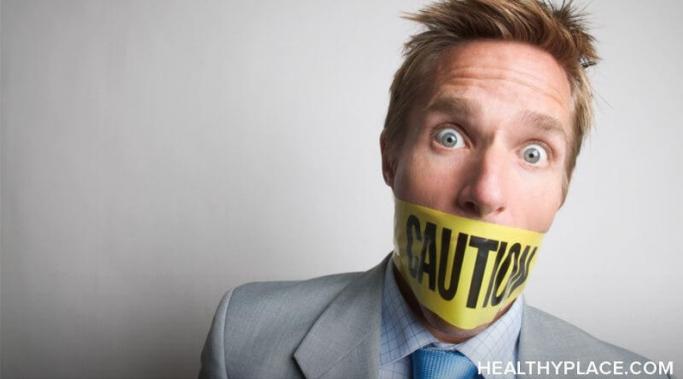Blogs
I like to practice gratitude in recovery. This is because recovering from a mental illness is difficult and often comes with dark moments. In my own journey, there have been many times when I've felt discouraged and disengaged and ultimately have asked myself, "Is recovering worth it?" Well, yes, it is worth it, but it's nice to have reminders. I've taken my gratitude practices very seriously in the last few years, and they've become essential to my recovery.
Jokes and pranks can be fun for some people, but they can be downright abusive for others. Not everyone will possess the same sense of humor, leaving the other person with conflicted feelings. Does this mean pranks and jokes are verbally abusive or cruel? For some, they can be. While jokes can be fun, hurtful or malicious words packaged in an entertaining method of delivery are still verbal abuse.
Every few years, I search for movies and books I haven't read or seen that are either created by someone with schizophrenia or have a character who has schizophrenia. I love a good memoir written by someone with schizophrenia because, in most cases, the writer can tell about both good and bad days or hard times and times when things have been much smoother or better. It feels like that is a realistic view of schizophrenia (at least for me), and often, the author gives us some hope. After all, they are in a place with their illness where they can write and publish a book. Books and movies can show a realistic version of schizophrenia or not.
Having been through the depths of despair in my gambling addiction journey, I can confidently say that financial health is one of the most challenging areas to rebuild. The financial instability that gambling throws you into takes a lot of determination and the right strategies to overcome. My experience with debt management and regaining financial stability taught me many valuable lessons I wish to impart to others like me. Read on to learn more about rebuilding your finances after gambling addiction.
Traveling for work can be exhausting but can be even more complicated when you have bipolar or depression. It is a time-consuming process to get ready for travel when you have one of these mental health conditions. There are so many items that need to be taken into consideration when traveling for work with bipolar or depression, including medications and your sleep schedule.
I recently learned how much healthy activities matter. Last week, I had two consecutive days off from work, which does not happen often. Usually, I spend those days oversleeping. But last week, I tried to stay busy with healthy activities. Here are five ways that I benefited from staying active on my days off work.
A common symptom of anorexia is associating specific foods with shame, fear, or distress. In spite of all the progress I've made to heal from my eating disorder, this restrictive outlook on food still remains one of the toughest myths to dispel. But with some encouragement from my personal trainer, I have recently started taking certain foods out of the shame category. Here's what I am discovering in the process.
Identity policing is when a person tries to tell another person (usually one with a marginalized identity) that their identity is invalid or that they can't or don't belong to an identity group they claim to identify with. I wanted to talk about this after my last post, where I talked about what it means to be a lesbian. Unfortunately, even within the queer community, I have had my identity policed on more than one occasion. Identity policing can be extremely hurtful and problematic. Allow me to illustrate with the example that follows from my life.
In the past, my trauma therapist has had to give me a reality check about over-identifying with borderline personality disorder (BPD). To be honest, I needed that wake-up call. Not every unpleasant thought or emotional dip is automatically a BPD symptom. It's made me realize the pitfalls of getting too wrapped up in identifying with my mental health issues.
Foreboding joy is a concept I discovered recently. In her latest book, "Atlas of the Heart," Brene Brown describes 87 emotions that humans experience. While I could recognize and identify times when I felt most of the feelings she listed, foreboding joy was difficult to understand. Why do I run away and catastrophize when things are going well?









